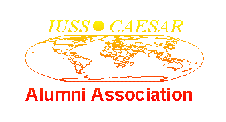
Useful Guidance Toward Productive Analysis
By Bruce Rule - Aug 19, 2013
The following comments have been extracted from an essay on Dr Edward Teller and the Lawrence Livermore Radiation Laboratory which appeared on page 955 of the 23-30 Dec 04 issue of the UK science magazine NATURE.
- Ideas blossom from imagination but they must be tested against reality; that is the essence of science.
- Anomalies in data lead theorists to explore models which must be checked by experiment (with more data).
- Lowell Wood relished the collision of colorful imagination and careful analysis.
- I worked on tachyons, the existence of which I doubted - out of sheer speculative interest.
Of the above, the second item which discusses anomalies, was the approach I found most useful over a 50+ year career in passive acoustics. Basically, when something didn't make much sense, it was trying to tell you that your current explanation probably was wrong and you should reexamine the data. Sometimes that reexamination took months, rarely years; however, it often resulted in a "EUREKA" moment. Basically, imagination is perhaps the most useful capability an acoustic analyst can have.
This may be just another way of looking at Occam's Razor, a corollary of which says that if you have to contrive a convoluted explanation for an observation, you probably are wrong even if you have not yet been proven to be., i.e.,
the simplest explanation is preferred.